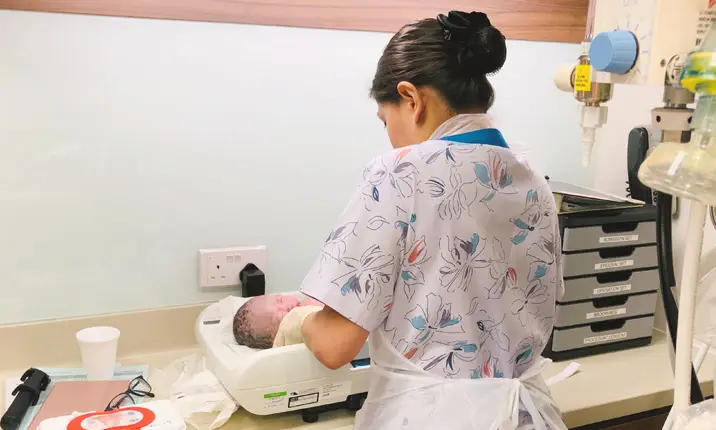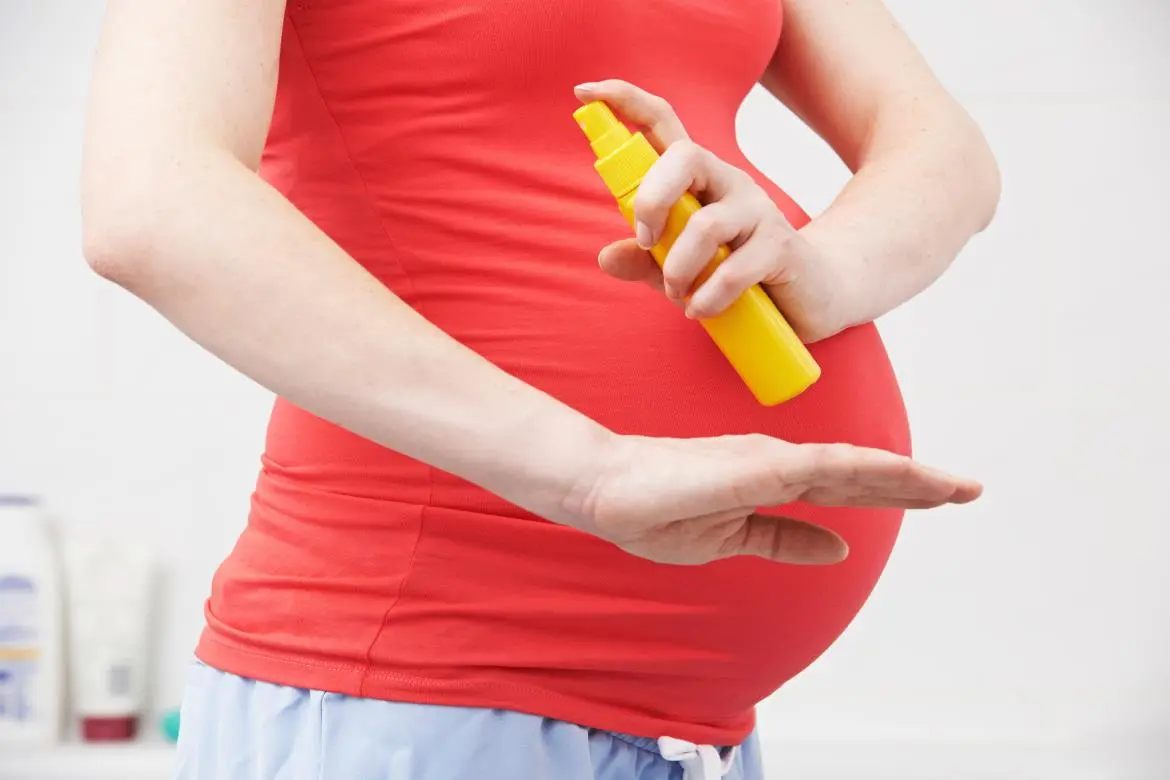While you wait in anticipation and excitement for the special day your baby is born, there will be many other first experiences along the way. Check out our maternity guide as you step into parenthood.
It is important to attend regular medical appointments to ensure the ongoing health of you and your baby and to monitor your baby's development in the womb. These visits will also provide the necessary education you need, as well as counselling and support. They also give you the chance to raise the many questions that will arise over the next 8 – 9 months.
Here are 6 key things you can expect to do in your journey as you prepare to welcome your new baby into the world.
1. Consult your obstetrician
If you suspect you are pregnant, or your pregnancy test kit tells you so, you should book an appointment to see an obstetrician. On this first visit, you can expect to answer some questions to help your obstetrician to understand your state of health, medical background and other information that may have an impact on your pregnancy.
This will include:
- Your menstrual and medical history including any previous pregnancies and surgeries
- Medications you may be taking and possible exposure to contagious diseases
- Family medical history
- Potential risk factors related to your age, health and family medical history
You should also use this consultation to ask any questions you may have.
Pregnancy preparation checklist
Here are a few questions to use as a checklist to make sure you are fully informed about how you should be looking after yourself and your unborn baby. Your obstetrician will provide more detailed information about the birth as your delivery date draws nearer.
- When is my baby due?
- How often do I need to see you during my pregnancy?
- Will I have scans throughout my pregnancy? When?
- What other tests will I have?
- How can I manage my morning sickness?
- Can I continue to take my current medications/supplements?
- Can I smoke or drink alcohol while I am pregnant?
- How much coffee or tea can I drink when I am pregnant?
- Are there any foods I need to avoid?
- Do I need antenatal classes?
- Can I continue my usual exercise routines?
- Can I still travel overseas?
- How much weight gain is healthy for me?
2. Prenatal scans and tests to check the health and gender of your baby
After your first visit with your obstetrician, follow-up appointments will be made to ensure yours and your baby's health are monitored regularly. You are encouraged not to miss any of these appointments.
An ultrasound scan from week 6 onwards should be able to detect your baby's heartbeat, and your doctor should be able to give you an expected due date.
Scans at every antenatal visit
Scans are often done at antenatal visits. Important periods for scans include:
- 6 – 10 weeks for dating of pregnancy to help in confirming the due date
- 11 – 14 weeks to assess the risk of Down syndrome
- 16 – 20 weeks to learn the sex of the baby
- 20 – 22 weeks for foetal organ abnormalities
- 32 – 34 weeks to assess the growth of the foetus
You also have the option of an amniocentesis test to test for Down syndrome. Your doctor may recommend this for mothers who have a higher risk for anomalies. Non-invasive prenatal blood tests are available to assess foetal chromosomes with high accuracy.
Make an appointment with an obstetrician at Gleneagles Hospital.
3. Attend antenatal classes to prepare yourself for childbirth and caring for the baby after delivery
You are encouraged to attend antenatal classes during your second trimester. It is recommended you attend these as a couple so that your spouse can better understand and support your needs. These classes aim to offer useful information such as:
- Maternal nutrition
- Relaxation training
- Breathing exercises and techniques during childbirth
- Breastfeeding
- How to prepare yourself psychologically for the arrival of your baby
- How to care for your newborn
At Gleneagles' ParentCraft Centre, you have the option of a private one-to-one session or a group session.
4. Join a maternity tour to familiarise yourself with the hospital's facilities and services
You can book a free maternity tour to explore the maternity ward and get familiar with the process on your big day.
During the tour, you can visit the room that you are staying at, the delivery suite where you will be welcoming your baby, what services you can expect. Most importantly, be assured that you are in good hands during your entire length of stay.
Some hospitals, like Gleneagles Hospital, also provide you a simple tasting session to sample the confinement food offered to all mummies!
5. Signs of labour: Know when to go to the hospital and what to bring
When the big day finally arrives, it is important to know when to go to hospital. Check with your obstetrician if you are beginning to experience the first signs of labour. You may be told to wait until the contraction frequency increases, or visit the hospital when you experience any of the following:
Early signs of labour
- Immediately, when you experience any labour symptoms if you have a high-risk pregnancy or are carrying twins or multiples
- In a normal single pregnancy, when your contractions are regular and strong, and coming every 10 – 15 minutes for 1 – 2 hours
- Rupture of membranes (water breaking)
- Heavy vaginal bleeding
- Reversed foetal movements
- Blurred vision
- Severe headaches
- Dizziness
- Intense stomach/abdominal pain
- Seizures
Signs that labour is 24 – 48 hours away
Your body will usually provide warning signs that your baby is on its way. Here are 8 signs to look out for so you can better prepare yourself for giving birth:
- Water breaking, or the rupture of your amniotic sac. This can create wetness in your vagina or on your perineum.
- Mucous plug, which functions to seal the opening of the cervix. When labour approaches, the plug loosens and drops out in preparation for birth. You may notice it as a glob of mucous in your underwear or in the toilet that can look clear, pinkish or bloodstained.
- Weight loss, as a result of your body shedding excess water. This is because you have less amniotic fluid toward the end of your pregnancy, and because the baby's movement to a lower position places additional pressure on your bladder, causing you to urinate more frequently.
- Nesting is a natural maternal instinct to get the house ready for your baby's arrival, and some women experience a sudden burst of activity in the days preceding delivery.
- Back pain, which is normal during pregnancy, may worsen, especially in the lower back. For some women, this pain will radiate to your pelvic area.
- Contractions are how your uterine muscles prepare for delivery. False contractions are usually mild, but real contractions are stronger and more frequent.
- Dilation of the cervix is what allows the baby to pass through the birth canal. Dilation extends from 0 to 10 cm, and a 2 – 3 centimetres dilation usually indicates that labour is coming soon.
- Joint loosening is the result of higher levels of relaxin, a hormone that helps relax the joints in your pelvis and lower back to prepare for delivery. It may also cause rectal muscles to relax, leading to diarrhoea.
Hospital bag checklist
Pack a bag ready with what you will need around a month before the due date. This way, in the event that you need to visit the hospital immediately, you can just grab and go.
These include:
- Documents
- Marriage certificate
- Identity card / passport
- Letter from your doctor, laboratory results (if any)
- Cord blood collection kit (if any)
- Clothing
- 2 sets of outfits (with front opening for breastfeeding)
- Disposable underwear
- Toiletries (hospital will provide basic toiletries)
- Nursing bra
- Maternity pads
- Slippers
- For baby
- Receiving blanket / baby blanket
- Baby mittens and boots
- Baby hat
- A set of clothing for day of discharge
- For father / birthing partner
- Snacks and drinks
- Change of clothes
- Magazines or something to pass the time
- List of people to call
- Toiletries (hospital will provide basic toiletries)
6. Care for yourself and your baby post-delivery
When your baby is born, the medical team will conduct some tests. This is done to establish that your baby is in good health or alert your doctor to any medical problems immediately.
These tests include:
- APGAR, a quick, overall assessment of a newborn's well-being. It is conducted at 1 and 5 minutes after the birth of your baby, measuring your baby's colour, heart rate, reflexes, muscle tone and respiratory effort.
- G6PD deficiency (lack of an enzyme)
- Hypothyroidism (low thyroid function)
- Hearing loss
- Bilirubin to assess for infant jaundice
After delivery: Breastfeeding
After delivery, you can expect lactation consultants to visit you in your room to guide you in the initial breastfeeding process. Breastfeeding classes and daily bath demonstrations are also provided at the ward. The process of breastfeeding can be stressful, especially for first-time mothers, so having a professional to guide and support you is very helpful.
After discharge from the hospital, the lactation consultants will follow-up with a phone call to check on how you are coping.
If you have any concerns at all about your pregnancy, or what to expect in the days leading up to childbirth, always consult your doctor.
Most importantly, as you prepare yourself during your pregnancy, don't forget to embrace all the small moments.
Advises Dr Chong: "Pregnancy is special and wonderful, so remember to enjoy the journey!"




















